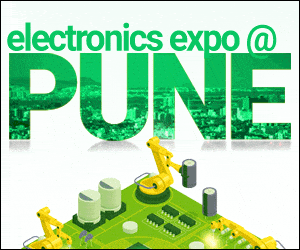The introduction of electric mobility has given rise to a pleasant number of innovations and business models in the industry that has been largely spearheaded by the startup ecosystem. Taking a detour from the ordinary, this EV startup has not only built a business model around being the messiah for companies that desire to shift to electric mobility, but has also figured out a unique way to merge tech and finance together.
In a conversation with ElectronicsForYou’s Rahul Chopra and Siddha Dhar, Akash Gupta, CEO and co-founder of Zypp Electric tells us about the gap Zypp fills in the EV industry, its growth plans and challenges, and why it also calls itself ‘an EV fintech company’.
Q: Why is there such a sharp rise in the adoption of electric mobility in the logistics sector? How would you describe Zypp’s solution in simpler terms?
A: Today, the one problem that we’ve picked to solve is that all the logistics companies want to go electric. Why are they wanting to go electric? Firstly, because there is government pressure, both state or central. That’s the push, but at the same time, there is a very inherent pull. Logistics is a very low margin business and since electric bikes have a lower total cost of ownership (TOC), it effectively makes them a better choice due to three reasons– firstly, to reduce their cost of logistics; secondly, because they have their own sustainability goals or ESG mandates which is pushing them to go electric; and thirdly, due to rising petrol prices, the savings of delivery executives are attriting, and hence the are deliveries are getting affected. These are the clear three reasons why logistics or last-mile delivery partners are working with us.
Now, coming to what our offering is, it is very simple. We are a tech-enabled platform which brings all stakeholders of the EV ecosystem together to give a seamless experience to the consumer, so much so that the consumer does not feel the difference between a petrol-run vehicle or an EV. Whatever experience he was having on a petrol bike for logistics last mile delivery, all of that is given by Zypp at our platform.
We do that by deploying a very robust 120 km mileage bike along with bringing our own charging and swapping infrastructure (for which we have also partnered with a few companies). Alongside, we have all of this running on an app with a very efficient backend which helps us track where the fleet is, how to geofence it, where to target it and how to utilize it. All of that hassle is ours, the customer does not have to worry about it. Then we have trained and quality driver partners who bring thorough experience in working and handling an EV to the table and can deliver shipments whether its food, grocery or ecommerce. At the end of the day, we also provide maintenance and care support to all our bikers who use our bike. Wherever they are, they get call support and human support so that they are unstoppable.
What we have essentially done for these customers is that we’ve taken their capex cost away because we are deploying their EVs and also taken away their operation hassle because we are managing the charging infrastructure. We have given them a scale of about 5,000 bikes which is going to 15,000 over the next 12-18 months, and also the assurance they need not worry about things like spare parts, maintenance.
Q: Is this offering of outsourcing the entire delivery to you the same for all the clients that work with you?
A: Outsourcing the EV for deliveries is what we offer to our B2B partners. We also have a B2C offering which is for all the delivery executives where we manage the driver also because that is the expectation of the client.
But in the cases of B2B clients like Zomato, Swiggy, Uber, what they look for is for the option for their drivers to switch to electric. For this, we have an app where these drivers can see multiple bikes at multiple Zypp micro hubs which we have set up across the cities we operate in, where there are 25-30 bikes available at any point of time. The drivers can go there, scan the QR code, pick a rental plan, either a week/month(s), and then start working with the B2B client and earn the most out of it.
Q: How are you charging these clients?
A: We charge them on the basis of per delivery, which is again, duration-based.
Q: Apart from the policies that require people to shift to EV, are you doing anything on your part to convince businesses?









